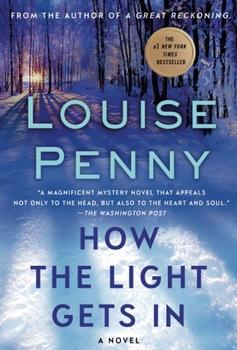Summary | Excerpt | Reading Guide | Reviews | Beyond the book | Read-Alikes | Genres & Themes | Author Bio

In the third novel of this bestselling series, London investigator Maisie Dobbs faces grave danger as she returns to the site of her most painful WWI memories to resolve the mystery of a pilot's death
In the third novel of
this bestselling series, London investigator Maisie Dobbs faces grave
danger as she returns to the site of her most painful WWI memories to
resolve the mystery of a pilot's death
Agatha Christie's Miss Marple. Sue Grafton's Kinsey Millhone.
Alexander McCall Smith's Precious Ramotswe. Every once in a while, a
detective bursts on the scene who captures readers' hearts -- and
imaginations -- and doesn't let go. And so it was with Jacqueline
Winspear's Maisie Dobbs, who made her debut just two years ago in the
eponymously titled first book of the series, and is already on her way
to becoming a household name.
A deathbed plea from his wife leads Sir Cecil Lawton to seek the aid
of Maisie Dobbs, psychologist and investigator. As Maisie soon learns,
Agnes Lawton never accepted that her aviator son was killed in the
Great War, a torment that led her not only to the edge of madness but
to the doors of those who practice the dark arts and commune with the
spirit world.
In accepting the assignment, Maisie finds her spiritual strength
tested, as well as her regard for her mentor, Maurice Blanche. The
mission also brings her together once again with her college friend
Priscilla Evernden, who served in France and who lost three brothers
to the war -- one of whom, it turns out, had an intriguing connection
to the missing Ralph Lawton.
Following on the heels of the triumphant Birds of a Feather,
Pardonable Lies is the most compelling installment yet in the
chronicles of Maisie Dobbs, "a heroine to cherish (Marilyn Stasio,
The New York Times Book Review).
If you're a fan of quality period fiction and have not yet discovered Jacqueline Winspear you must, absolutely must, hurry down to your bookstore or library and pick yourself up a copy of Pardonable Lies (or one her two earlier books) at your earliest opportunity; the plot of each book stands alone and Winspear provides sufficient backstory in each that you can dip into the series at any point...continued
Full Review
(212 words)
This review is available to non-members for a limited time. For full access,
become a member today.
(Reviewed by BookBrowse Review Team).
The Series so
far
Maisie Dobbs (2003)
Birds of a Feather (2004)
Pardonable Lies (2005)
Messenger of Truth (Aug 2006)
The year is
1930 and it's been more than a
year since Maisie Dobbs first
hung up her shingle as a private
investigator She is a
perceptive observer of human
nature and, most important for
her line of work, she is able to
move smoothly between the
classes - a useful skill
in the still highly class-stratified
England of the inter-war period.
Her ability in this area is due
...
This "beyond the book" feature is available to non-members for a limited time. Join today for full access.

If you liked Pardonable Lies, try these:

by Louise Penny
Published 2014
Chief Inspector Armand Gamache of the Sûreté du Québec digs beneath the idyllic surface of village life in Three Pines, finding long buried secrets--and facing a few of his own ghosts.

by Sadie Jones
Published 2013
A frightening yet delicious drama of dark surprises - where social codes are uprooted and desire daringly trumps propriety - alight with Edwardian wit and opulence.